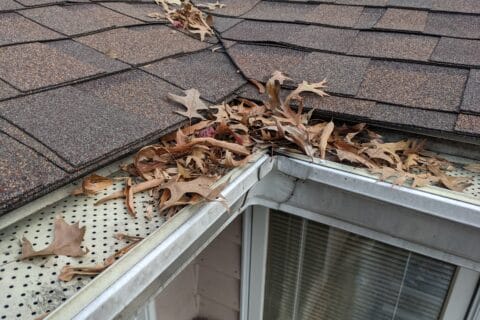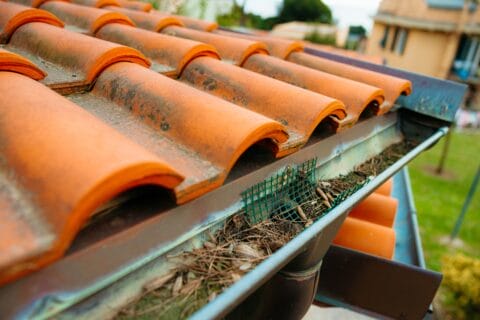Window Screen Cleaning: Why It’s Just as Important
 Revised by Bruce Hulse
Revised by Bruce Hulse
When we think of window cleaning, most of us picture sparkling glass panes that invite natural light into our homes and brighten the indoor atmosphere. But there’s a critical component that often goes overlooked—the window screen. These mesh barriers play a vital role in maintaining indoor air quality, regulating temperature, blocking pests, and protecting the clarity of your windows.
In Ottawa’s four-season climate, window screens accumulate dust, pollen, insects, and moisture year-round. While glass cleaning enhances visibility, screen cleaning preserves the comfort, health, and longevity of your home environment.
This article explores why window screen cleaning should be a non-negotiable part of your maintenance routine, how it benefits your home, and how to get it done right—whether you’re tackling it yourself or relying on a professional team like Clear Ottawa.
The Overlooked Importance of Window Screens
While clean windows may steal the spotlight when it comes to curb appeal, your screens do just as much heavy lifting—often behind the scenes. They act as filters, guards, and structural accessories, playing a more active role in your home’s function than you might think.
Window screens:
- Act as a protective barrier against debris, bugs, and allergens
- Allow ventilation without compromising security
- Shield window glass from direct exposure to environmental wear
- Support your HVAC system by improving air circulation
Without clean screens, all of these benefits begin to break down. Dirty or clogged mesh reduces airflow, traps heat, and introduces contaminants to your indoor space. Maintaining your screens ensures your windows serve their full purpose.
How Dirty Window Screens Affect Indoor Air Quality
One of the most significant but overlooked issues with dirty screens is their effect on indoor air quality. Screens are essentially outdoor filters: when air passes through them, it should be cleaner and fresher. But when the mesh is covered in grime, it becomes a source of pollution rather than protection.
Accumulated Allergens and Pollutants
Over time, window screens trap:
- Pollen from spring and summer bloom
- Dust and fine debris carried by the wind
- Mold spores from moist environments
- Vehicle exhaust particles, especially near busy roads
When you open your windows on a beautiful day, you may unknowingly allow these irritants to enter your home. This can trigger allergies, asthma attacks, and general respiratory discomfort—especially in sensitive populations such as children or seniors.
The Health Risks of Poor Maintenance
Homes with neglected window screens often report stale-smelling air, lingering dust, and even visible mold near sills. For individuals with compromised immune systems, these conditions can pose significant health risks. Regular screen cleaning acts as a first line of defense against airborne pollutants, allowing fresh air to enter your home without compromising your health.
Do Window Screens Contribute to Temperature Regulation?
Yes—more than you might think. During warm summers, window screens allow you to enjoy fresh air while reducing sun exposure. Their mesh design breaks up intense direct sunlight, helping to keep rooms cooler without resorting to air conditioning.
However, when screens are clogged with dirt or dust, they hinder this effect. Airflow is reduced, UV protection is uneven, and the trapped particles can actually raise indoor humidity.
In winter, interior screens provide a buffer between indoor heating and the cold glass. Clean screens help retain heat and prevent cold drafts from filtering through small openings. Maintaining them ensures your home stays energy-efficient in every season.
The Connection Between Screen Cleanliness and Window Longevity
Screens not only protect your home from pests and particles, but they also play a vital role in safeguarding your windows. A dirty screen can transfer grime to the glass, especially when combined with rain or condensation. Over time, this leads to:
- Etching or staining of the glass
- Mold and mildew growth around the frames
- Accelerated corrosion of aluminum or metal screens
When screens are neglected, they hold moisture, dust, and organic material against the window’s surface. This wears down seals, attracts insects, and compromises the integrity of both the glass and the surrounding frame. Clean screens actively preserve your window investment.
Safety Concerns: When Screens Become a Liability
Window screens are safety features—but only when they’re intact and clean. Torn mesh, warped frames, or sagging panels reduce visibility and pose real risks.
Poor Visibility
Grime-covered screens obscure your view. Whether you’re trying to monitor outdoor activity or simply enjoy your surroundings, dirty screens detract from your home’s comfort and safety. In emergency situations, this lack of visibility can delay your response to outdoor threats or hazards.
Entry Points for Pests
Ripped or frayed screens provide easy access for insects and small animals, especially in rural or wooded areas. Ants, flies, spiders, and even mice can exploit tiny tears to enter your home. These intrusions are not only unpleasant—they can lead to infestations or the spread of bacteria and disease.
Maintaining your screens through regular cleaning and inspection helps prevent these vulnerabilities.
What’s the Best Schedule for Screen Cleaning?
A consistent screen cleaning schedule is essential for maintaining both the function and appearance of your windows. While the general recommendation is to clean your screens at least twice a year—once in early spring and again in late fall—the ideal frequency can vary based on several environmental and lifestyle factors.
These biannual cleanings help remove seasonal buildup such as salt residue from winter and pollen from spring, ensuring your screens remain breathable, effective, and free from long-term grime.
When More Frequent Cleaning Is Necessary
Homes exposed to more aggressive environmental conditions may benefit from more frequent cleanings—even quarterly. If you live near busy roads or construction zones, for instance, airborne dust and fine particles can quickly accumulate on your screens.
Homes near wooded areas or surrounded by flowering trees may see heavier pollen buildup, particularly during the spring and early summer months. Likewise, coastal regions often experience salt spray and fine sand that can wear down screen materials over time.
Indoor conditions also play a key role. Households with pets, smokers, or individuals with allergies or respiratory sensitivities should consider cleaning their screens more regularly to prevent dust, pet dander, and allergens from circulating into the living space. Keeping screens clean in these situations helps support healthier air quality and reduces potential irritants before they enter your home.
The Benefits of Proactive Screen Maintenance
A proactive schedule also means easier maintenance—light, frequent cleanings are far less time-consuming than infrequent, deep scrubs that require soaking, scrubbing, and potential stain removal. By addressing debris before it has time to harden or stain, you preserve the mesh structure, prevent damage, and improve airflow through your screens year-round.
If you’re unsure how often your specific home needs screen cleaning, a good practice is to inspect your screens monthly during warmer seasons. If you notice visible debris, trapped pollen, or obstructed airflow, it’s time for a quick clean—even if you’re between seasonal sessions.
How to Clean Window Screens: A DIY Method
If you prefer to clean your screens yourself, follow these steps for optimal results:
Tools and Materials:
- Garden hose or large basin
- Soft brush or microfiber cloth
- Mild dish soap or vinegar-water solution
- Dry towels or drip racks
- Screwdriver (for screen removal)
Steps:
- Remove screens carefully to avoid bending frames.
- Rinse with water to loosen debris.
- Gently scrub both sides with soapy water using a soft brush.
- Rinse thoroughly, ensuring no soap residue remains.
- Dry completely before reinstalling to prevent mildew.
Tip: Lay screens flat on a clean surface during drying to avoid warping.
Window Scraping and Residue Removal
Sometimes, screens become embedded with sap, bird droppings, or hardened particles. In these cases, basic scrubbing won’t suffice.
Professionals use window scraping tools to carefully remove tough residue from both glass and mesh. This process involves:
- Using a flat-edged scraper to lift dried materials
- Avoiding damage to the mesh or glass
- Cleaning and drying the surface thoroughly afterward
Screen scraping should be handled by trained technicians to avoid accidental tears or scratches.
Enhancing Home Value Through Screen Maintenance
Window screens may not seem like a high-value item, but prospective buyers notice the details. Clean, intact screens suggest a well-maintained home. They:
- Improve first impressions
- Indicate good ventilation and air quality
- Reduce the list of minor repairs a buyer might request
For homeowners preparing to sell, screen cleaning is a quick, affordable way to boost perceived value and marketability.
Final Thoughts: Clean Screens, Clear Benefits
In a city like Ottawa—where seasonal weather creates ongoing maintenance challenges—window screen cleaning isn’t optional. It’s essential. Clean screens enhance air quality, temperature control, pest resistance, and your enjoyment of the view. More than just an aesthetic boost, screen cleaning protects your health, your windows, and your investment.


